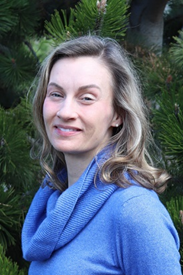Zoë Soon

Faculty: Irving K. Barber Faculty of Science
Faculty website: biology.ok.ubc.ca/about/contact/zoe-soon/
Teaching Fellow: 2024
Courses: BIOL131, BIOL133, BIOL232, HINT231, HMKN190, HMKN191, HMKN202, HMKN203, HMKN313, HMKN335, HMN401, HMKN499
Teaching Awards: UBCO Teaching Excellence & Innovation Award, Universitas U21 International Teaching Excellence Award, 9 UBCO Thank a Prof Awards, Human Anatomy and Physiology Society Full-Time Faculty Conference Travel Award, UBCO Teaching Honour Roll (2014, 2015, 2017), UBCO Golden Apple Award.
Teaching and Learning Activities related to Teaching Fellows
- Student Mentorship and Scholarship of Teaching and Learning – Higher education research and implementation of evidence-based teaching practice: I have received 14 SoTL Teaching and Learning grants and completed over 22 UBC SoTL research projects while supervising 23 undergraduate research students. I have completed 4 more pedagogical research projects independently or in collaboration with colleagues from UBCV and Brunel University, London, UK. The overarching goal has been to scientifically assess the effects of implementing innovative lesson activities that I have designed to fit the needs of the students and the course. The findings have been presented at 33 peer-reviewed national and international conferences and published in 4 peer-reviewed journal articles.
- Open Education Resource (OER) BC Campus textbook author: In collaboration with UBCV and BCIT, we are currently funded by 3 grants (UBCO ALT2040, UBCO CTIG, and UBCV OER) to hire student assistants for developing an Open Education Resources (OER) eTextbook with Student and Instructor Resources including Q&A for Human Anatomy, Physiology & Pathophysiology. We have used Universal Design for Learning (UDL) formatting, which means providing many learning tools in a variety of mediums in a manner that is accessible by all students and accommodates differences in vision, hearing, cognition, etc. The multimodal lessons are being designed includeing text, drawing, video clip tutorials, animations, 2D and 3D images, tables, graphs, and are interspersed with H5P plug-in questions. There are currently over 25 different possible HP5 question types that provide auto-feedback that are being used to make the book very interactive to help students sustain motivation, develop self-confidence and deepen their understanding of course content. I have written over 1000 practice Q&A for students which have been amongst the most popular parts of the book for my students. With my student assistants, we’ve also created and included Diversity in STEM spotlights in our OER e-text to highlight contributions to the field by individuals that have been traditionally marginalized (e.g., IBPOC and LGBTQIA2S+ community members). The goal being to encourage diversity, participation, and acceptance in STEM and Health Care, as well as provide inspiring role models for our undergraduate students while showcasing research and opportunities in the field. Our OER Pathology e-Textbook has had over 20, 000 users from the following countries, in order of traffic volume: India, Canada, USA, Philippines, Australia, Indonesia, UK, Malaysia, and Nigeria.
Teaching Fellow opportunity provides
“Recognition for contributions and supports the ability to contribute and support teaching and learning excellence at UBC. This opportunity helps to enable the sharing of ideas, collaborative efforts and community spirit.”
Teaching Passions and Philosophy
In a nutshell, my teaching goals are to make learning fun, interesting, and accessible, as well as to inspire lifelong curiosity and learning. This often means finding novel and engaging ways for students to interact with course content with activities that make complex topics easy to understand and memorable.
Ongoing and Future Goals
- Continued OER e-textbook writing and development coupled with mentorship of students and SoTL including assessing our OER to ensure its usability and making updates in response to suggestions by students and faculty.
- Lead Facilitator of Community of Practice (CoP) Leveraging Digital Assessments for Enhanced Learning: This past year, the CoP hosted discussions covering topics such as: H5Ps, GenAI, Webworx, Jupyter, PrarieLearn, Webwork, digital assessments, rubrics, auto-grading, auto-tracking and facilitating early alerts and feedback. The community learned and shared many tips and tricks. Planned monthly sessions are on the topics: hybrid/flipped classes, digital course resources, OER assessment repositories, Hypothesis, JupyterHub, Digital group work assessments, GenAI assessments, Gradescope, Crowdmark, Canvas assessments, team-making for group work, peer evaluations, Conference share-outs, and Video assessments and much more. Be sure to connect with us and join in on the meetings and Teams channel discussions. We’d love to have you join in – the more the merrier!
- Virtual patient and case study-based learning SoTL: This last year I designed a team-based learning (TBL) virtual patient case study on Asthma, testing out the virtual patient simulator in collaboration with Brunel University, London, UK. This year, I will be refining this case study and using SoTL to assess its impact. We will be creating 2 more case studies (1 Neurologic and 1 Renal) that have embedded virtual patient simulations.